Really bad kitchen habits you need to stop now
Cooking clangers
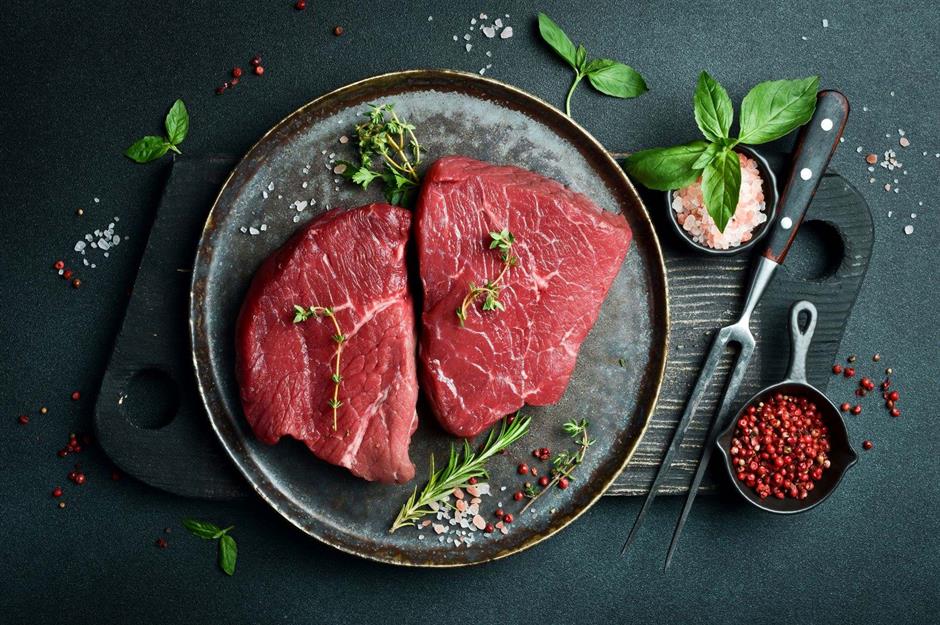
From ruining non-stick pans by using metal tools to guessing baking measurements and only part-reading recipes, a few bad kitchen habits can add up to a heap of cooking disasters. While some are just down to impatience and laziness, others are downright dangerous and should be avoided at all costs. Here we reveal the most common bad cooking habits – how many are you guilty of?
Click or scroll through our gallery to discover 37 bad cooking habits you need to break right now – counting down to the most critical of all.
37. Underestimating how slowly a slow cooker cooks
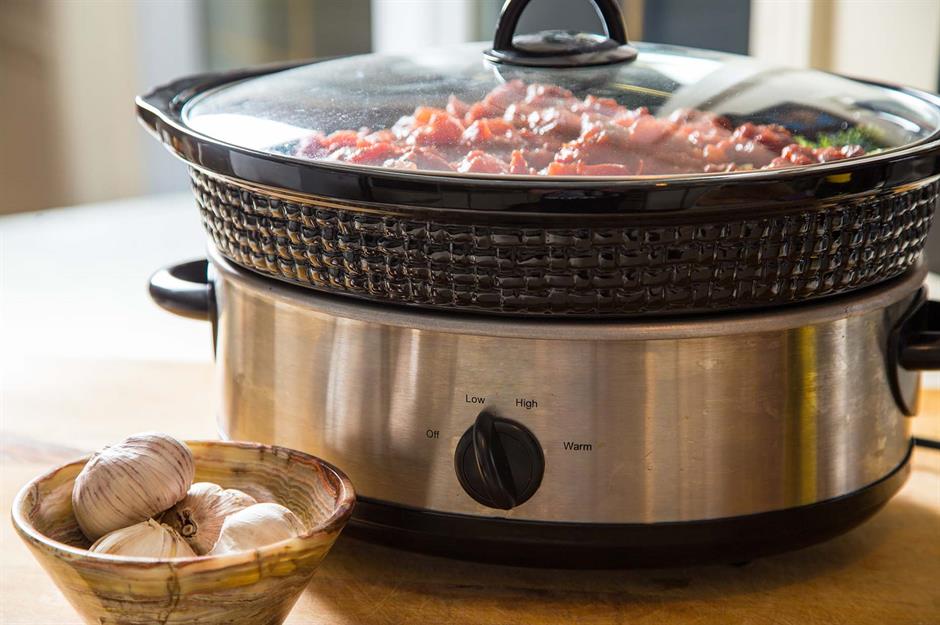
A standard slow cooker instruction manual will contain recipes for cooking both on high and low, but even the fastest of recipes on high will still take at least two hours – and if the dish includes meat, you're looking at four hours or so. To get the most from your slow cooker, you'll need to embrace a leisurely approach and not rush the cooking.
36. Cooking the same dishes time and again
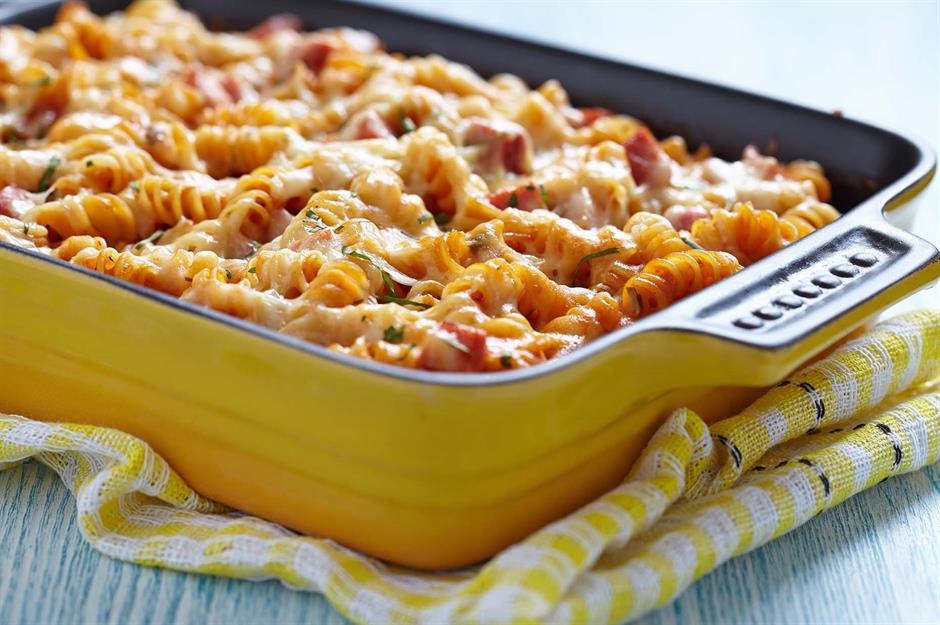
If you're not a confident cook or you have especially picky eaters in the family, you might be tempted to fall back on the same tried-and-tested recipes, time and time again. But if you stick with what you know and never try something new, you'll miss out on a whole host of dishes that you might enjoy even more. Our advice? Switch things up every now and then.
Sponsored Content
35. Not reading the recipe in advance
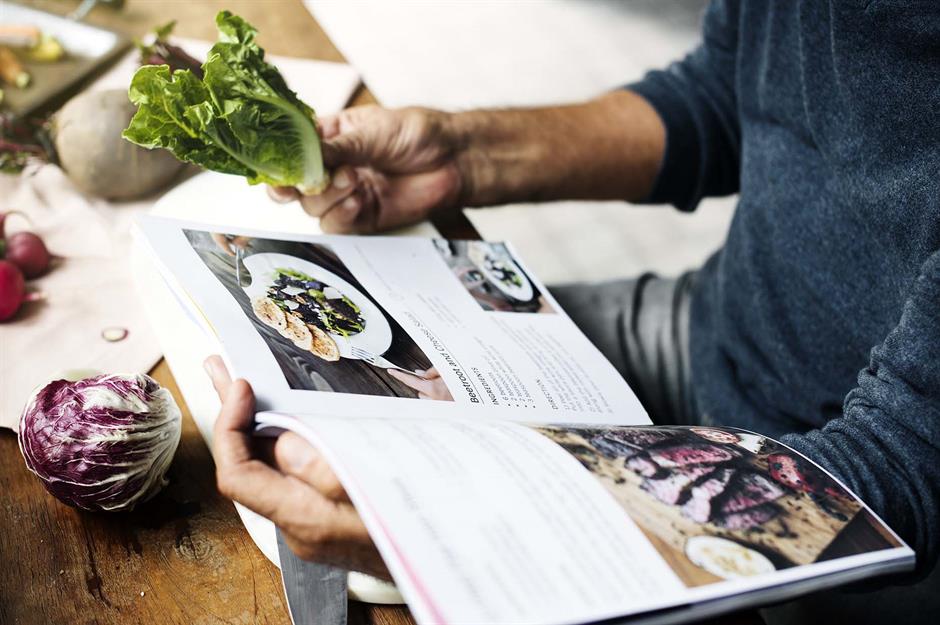
You lay out the ingredients for a recipe you're eager to try, you start reading through the steps – and then you realise you should've marinated the meat for at least two hours. There's almost no chance you can improvise at this point, especially if you're expecting guests, or if you're not willing to eat hours later than planned. The moral of the story? Before buying your ingredients, read the recipe steps, not just the ingredients list, and plan your time accordingly.
34. Pre-cooking lasagne sheets
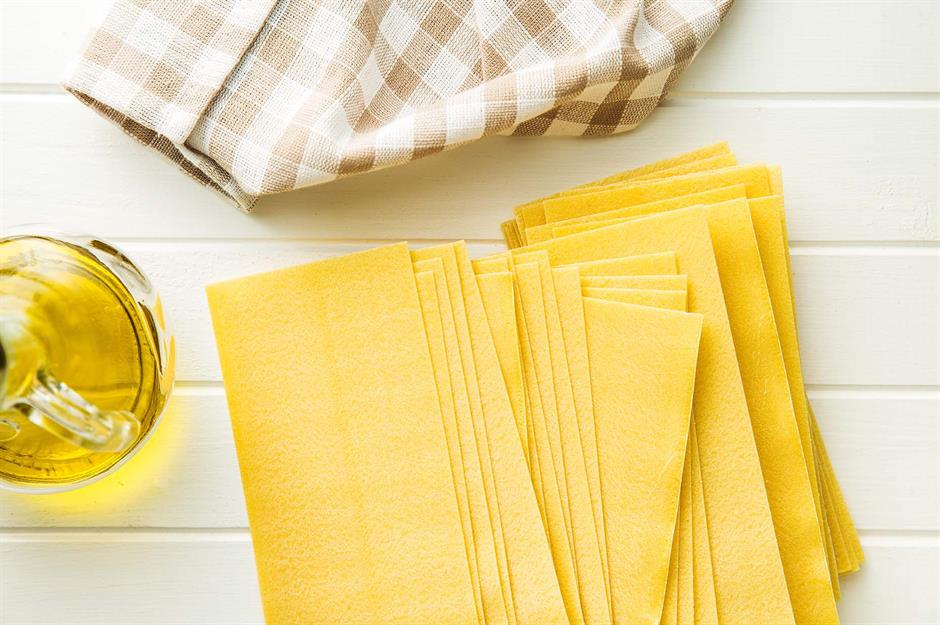
When making a lasagne, lots of home cooks add in the unnecessary (and time-consuming) step of pre-cooking their lasagne sheets. However, if you have plenty of liquid in your sauce – and if you bake your lasagne for at least 20 minutes – the pasta will cook to perfection. By pre-cooking your lasagne sheets first, you'll run the risk of overcooking them and turning the whole thing into a mushy mess.
33. Throwing perfectly good food away
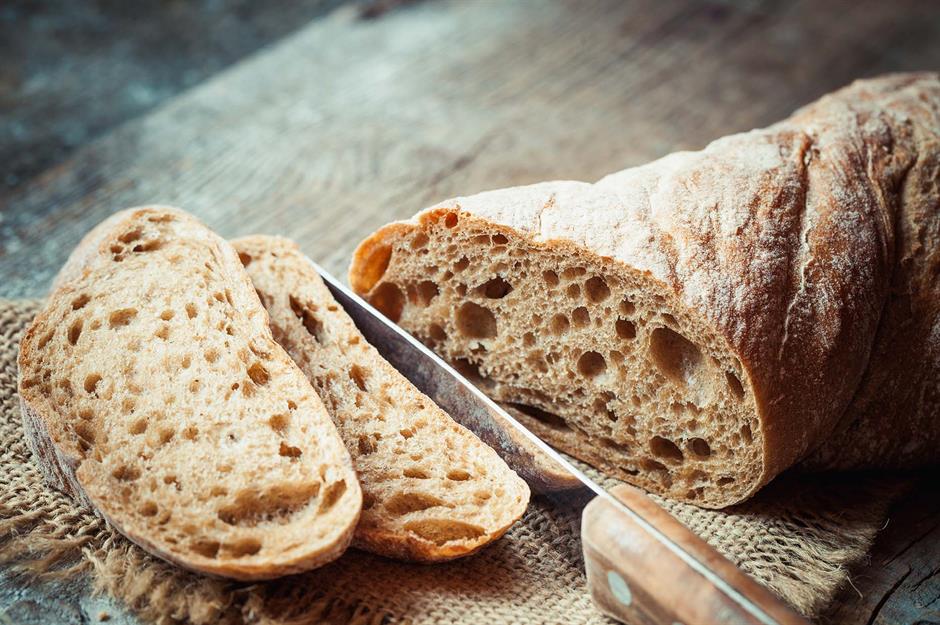
Let’s not confuse best before dates with use-by dates – the former are merely a guideline, while you should exercise caution with the latter. Throwing food away before we really need to is a waste of money, not to mention terrible for the environment. There are lots of ways to perk up food that's a little past its best, from using overripe bananas to make banana bread to reviving stale baguettes by splashing them with water, then popping them back into the oven for a few minutes.
Sponsored Content
32. Using old herbs and spices
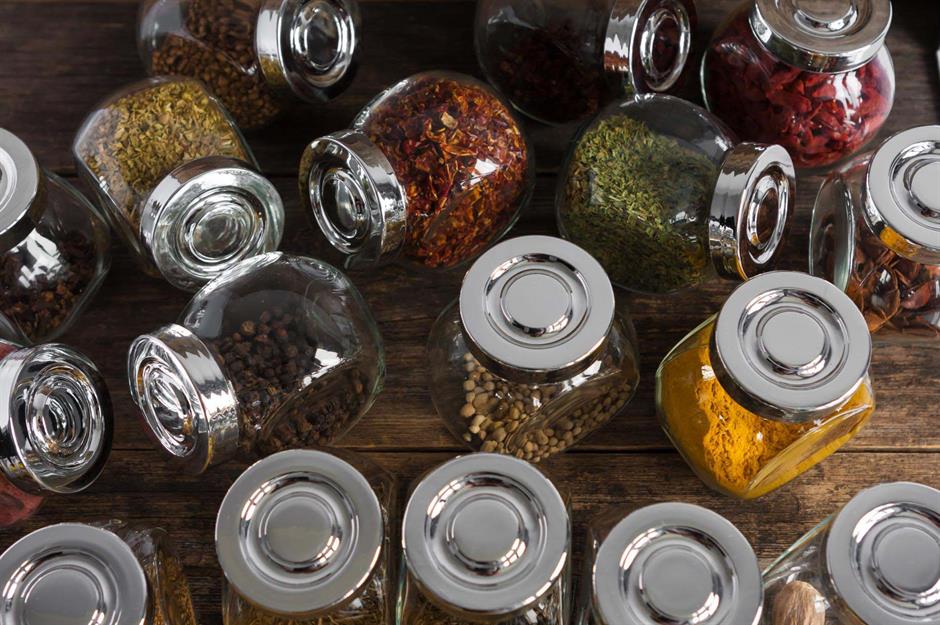
We all have an array of herbs and spices in our cupboards that don’t always see the light of day – which means that when they do come out, they’re not always in great condition. If a spice mix comes out of the jar in a solid lump, throw it out. Use fresh flavourings when you can (especially when it comes to things like herbs and chilli) and buy in small quantities for maximum flavour.
31. Using the counter as a chopping board
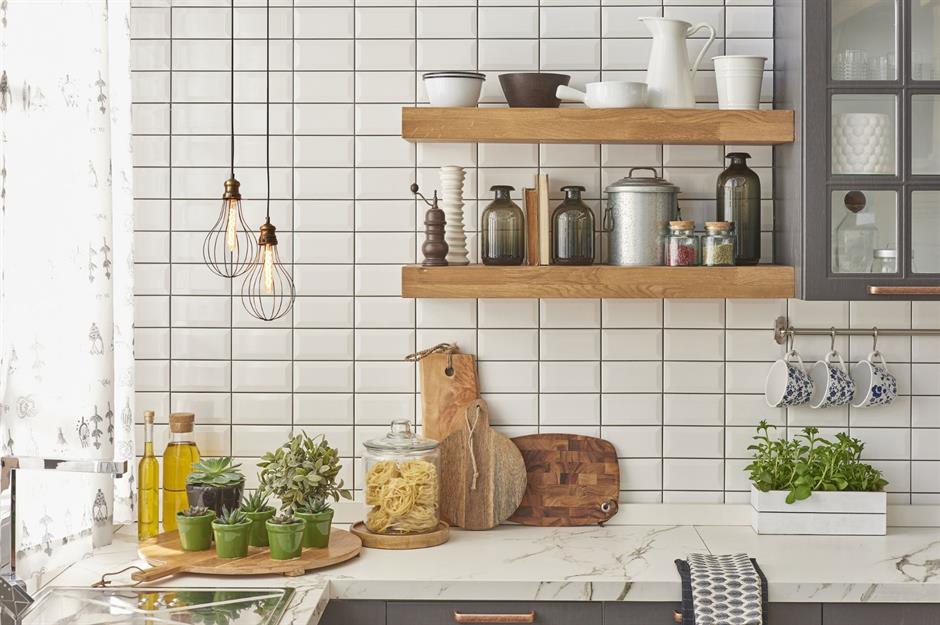
While it might be a time-saver, using the kitchen counter as a chopping board when you’re just cutting up an apple or carrot could be doing more harm than good – and let’s not even think about how many times you’ve buttered toast on the surface without wiping away the crumbs. This seemingly innocent habit results in a build-up of bacteria and food residue, which could have easily been avoided by using a chopping board.
30. Using extra virgin olive oil for frying
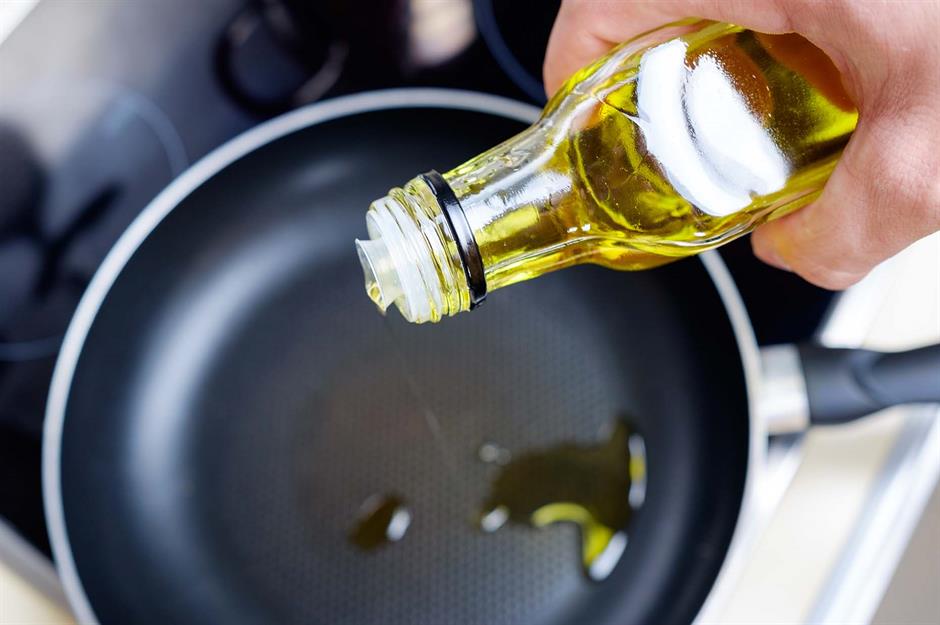
Extra virgin olive oil has a lower smoke point than other types of oil – so while it tastes great drizzled over salads or finished pasta dishes, it’s useless (and even dangerous) for shallow frying steak or deep frying chips. It can also be rather expensive in comparison. Instead, try oils with a higher burn point, like vegetable or sunflower oil.
Sponsored Content
29. Using boiling water for coffee and tea
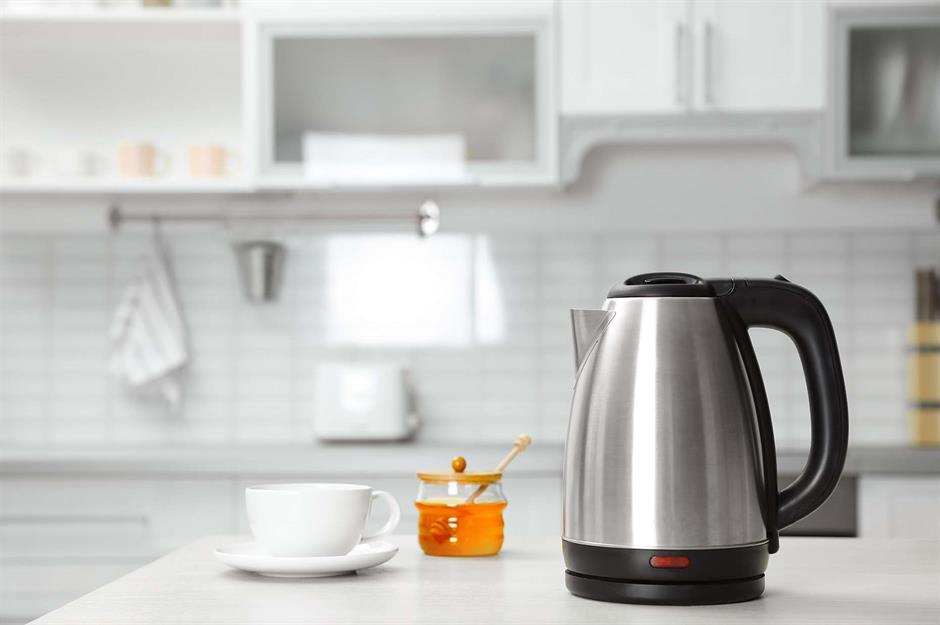
It’s a little-known rule that boiling water isn’t great for tea and coffee; it burns the grounds (or leaves) and increases bitterness in the cup. Using water that's slightly off the boil should result in a much tastier brew. America's National Coffee Association suggests a temperature of between 90-96°C (195-205°F) for the perfect cup of coffee.
28. Leaving butter uncovered
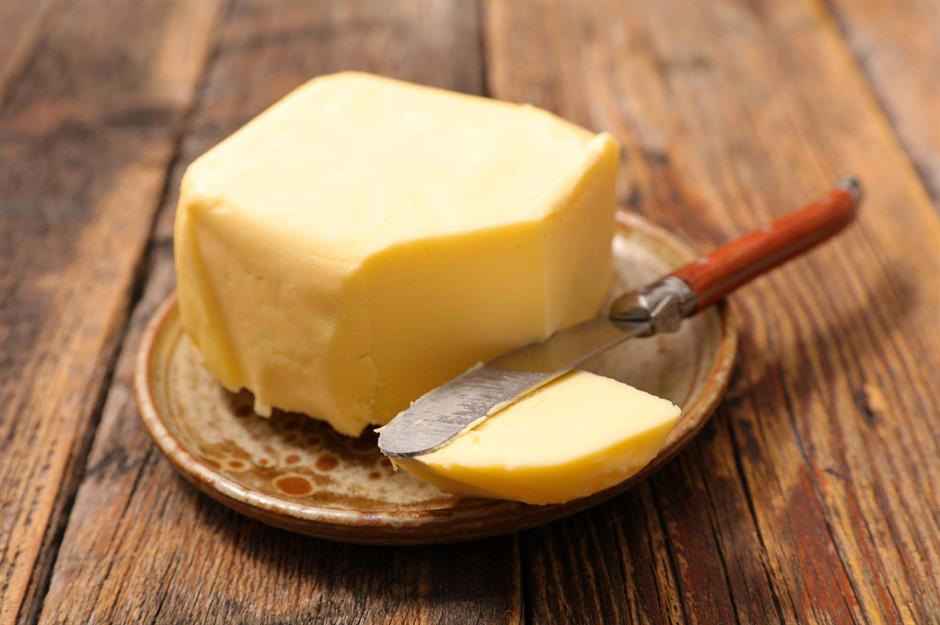
Sure, it might be easier to leave your butter uncovered; however, it absorbs smells, so it can pick up the taste of anything with a strong aroma that’s left in the fridge. To avoid this, refrigerate your butter in its original packaging within a re-sealable plastic bag, or use a butter dish with a cloche.
27. Not tasting a dish as you cook it
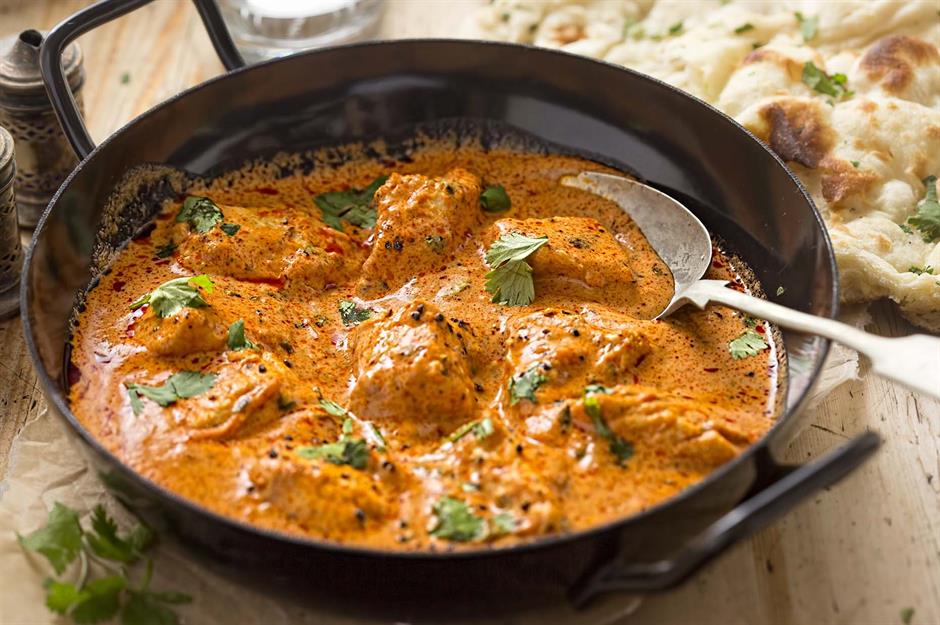
Without tasting it first, how do you know when a curry has reached the heat level you like, or whether a broth is seasoned enough? How about whether a sauce needs a little acidity or sweetness? You might get lucky when cooking familiar dishes you know by heart, but if you're trying something new, it's essential to taste as you go.
Sponsored Content
26. Never cleaning the kitchen sink
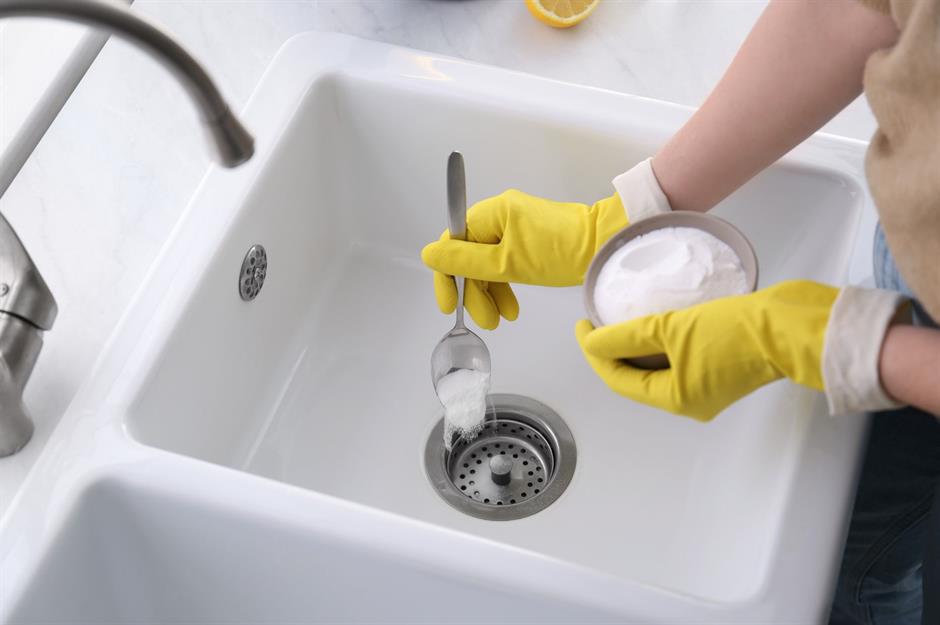
When was the last time you scrubbed your kitchen sink after washing the dishes? If you’re struggling to remember, it’s high time you incorporate doing so into your routine. The average sink is hit with everything from sauce splats and grease residue to old coffee grinds and raw meat juices on a regular basis. Wiping it down with washing up liquid and a sponge each evening will not only keep it squeaky clean, but it’ll also help to reduce the risk of bacteria growth and any nasty aromas. Adding a touch of baking soda and scrubbing with warm water every so often will make a big difference, too.
25. Forgetting to wash vegetables and salads
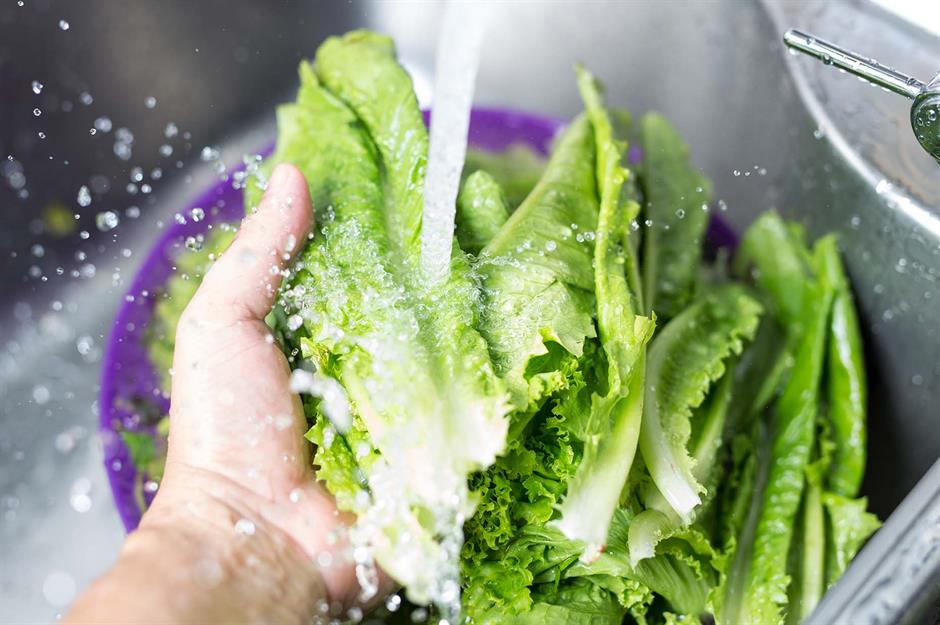
We often unintentionally forget to wash fruit, vegetables and salad leaves. However, it’s good practice to wash everything, rinsing off any pesticides, bacteria and dirt – and, ultimately, reducing our chances of getting ill. It also makes it much less likely that caterpillars and other insects will accidentally end up in your salad.
24. Using the wrong knife
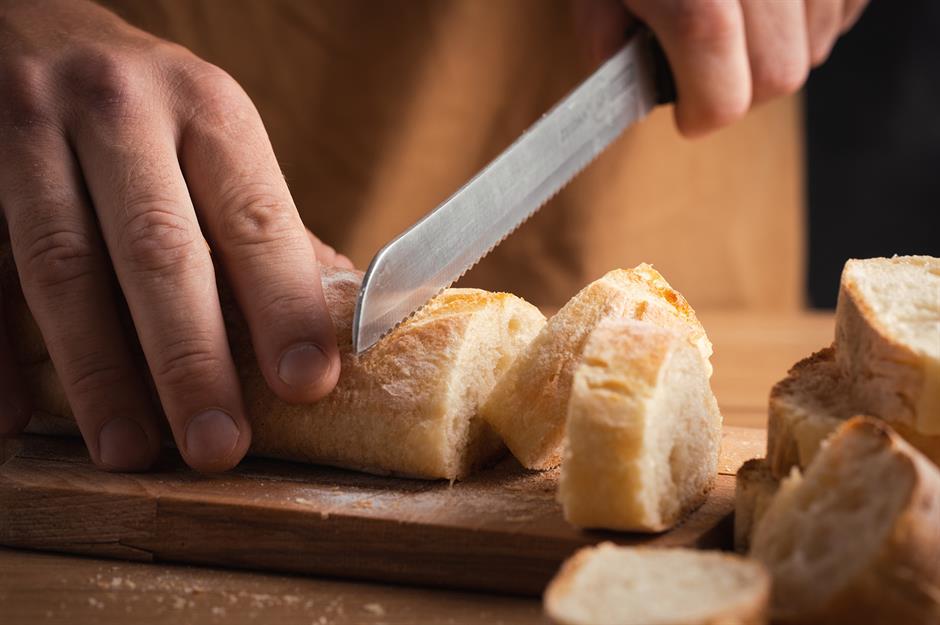
One of the biggest mistakes home cooks make is not using the right knife – so here's a quick guide. Serrated knives are ideal for cutting bread but are also good for slicing soft produce (like tomatoes and strawberries) and sawing through larger, tougher items such as celeriac. Paring knives are ideal for fiddly jobs like peeling, removing seeds and de-veining prawns, while decent quality chef's knives are perfect for general slicing and dicing tasks.
Sponsored Content
23. Barbecuing when the flames are still kicking up
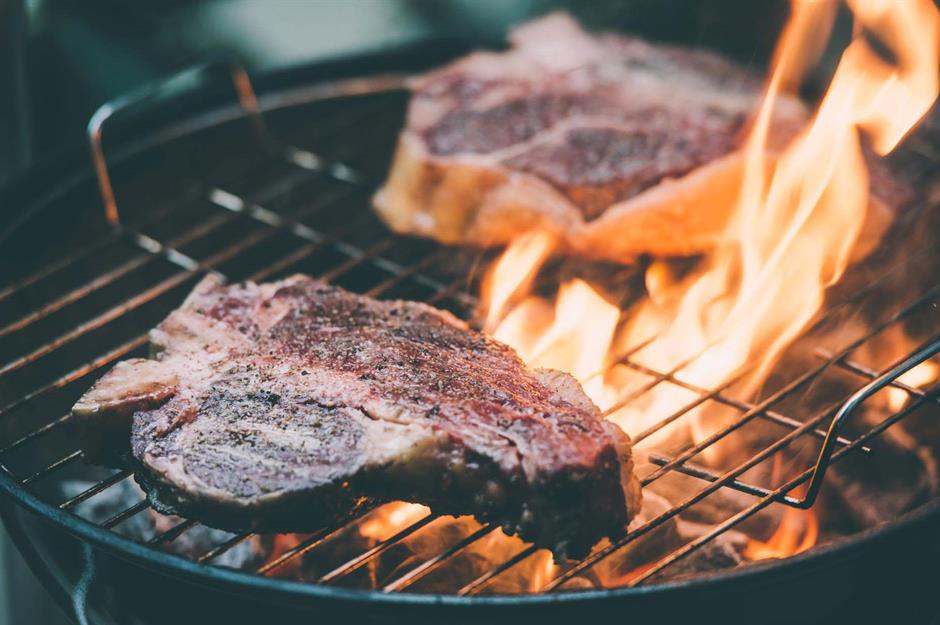
When the sun peeks through and we finally bust out the barbecue, we often get a little overexcited and throw the meat on the grill while the coals are still kicking up massive flames. Cue meat – and vegetables – that are burnt on the outside and raw on the inside. You'll get much tastier results if you wait for the flames to die down and cook over the hot coals.
22. Allowing old food to fester in the fridge
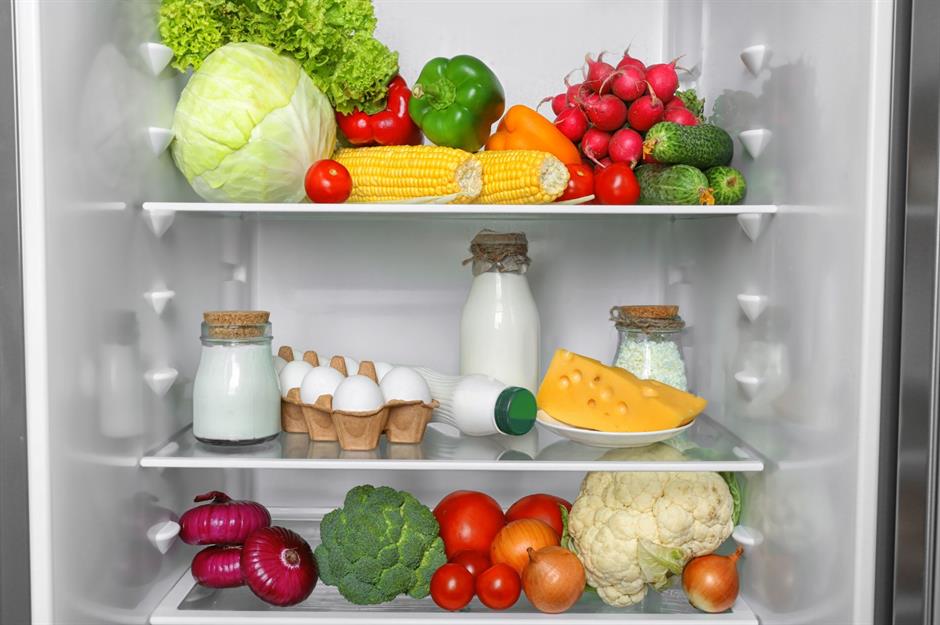
No one likes finding a mouldy head of broccoli or a carton of spoiled milk lurking in the back of their fridge. Not only can it leave the appliance with a nasty aroma, but it can also be hazardous to our health. There are a few ways to prevent this from happening, including storing different foods in the correct part of the refrigerator (meat should be kept at the bottom to prevent its juices from spoiling other foods) and regularly checking food labels and use-by dates.
21. Overfilling a frying pan
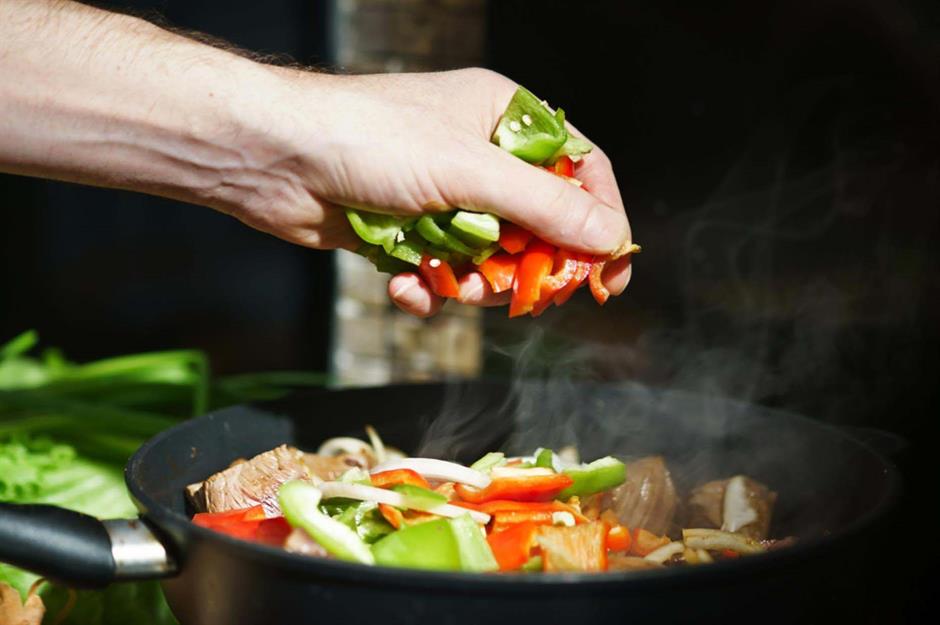
Much of the point of frying is to add colour and cook food evenly and thoroughly. Overfilling a pan or wok with ingredients means that some won’t touch the bottom, leaving them to steam or boil in their own juice – which is fine if you want steamed food (though using a steamer would be better), but not ideal if you're whipping up a stir-fry, for example.
Sponsored Content
20. Putting non-stick pans in the dishwasher
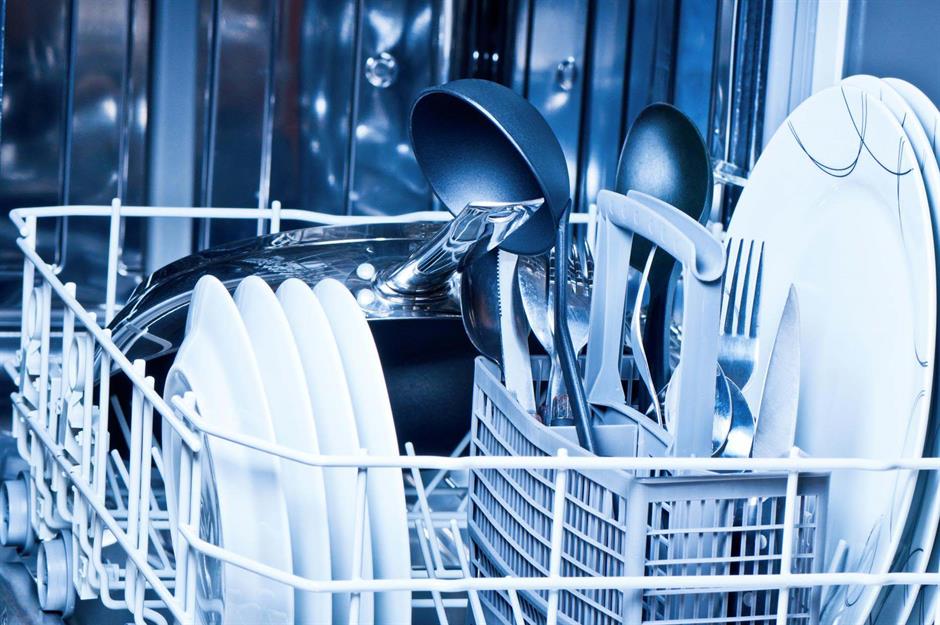
Even if your pans claim to be dishwasher-safe, don't be tempted to pop them in with the rest of the plates and cutlery after a meal. Your dishwasher's high temperatures and strong cleaning chemicals will start to wear down the non-stick coating on your pans, and you'll have to replace them much sooner than you'd like. Play it safe and stick to washing them by hand.
19. Mixing meaty and vegetarian foods
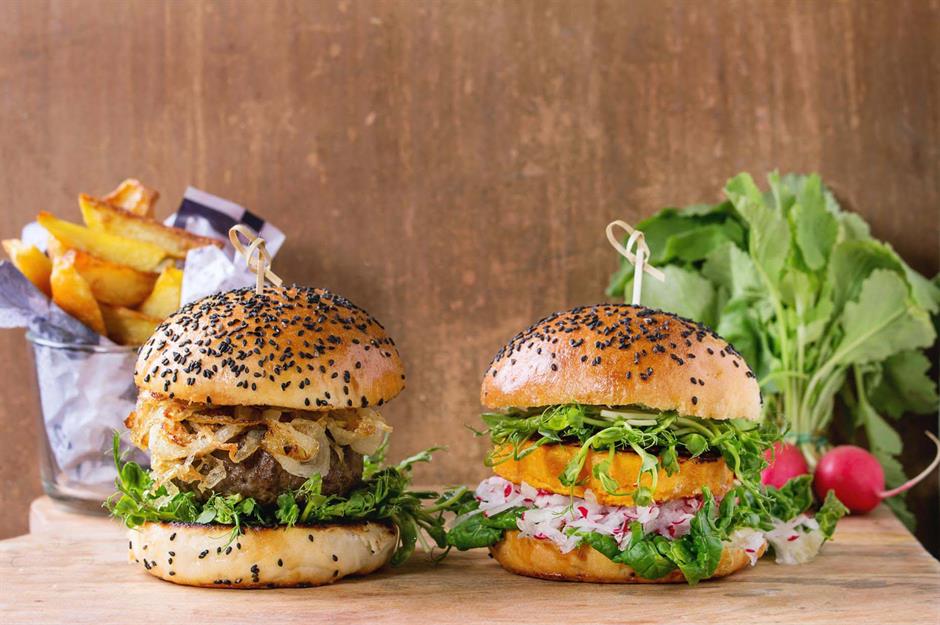
When catering for both meat-eaters and vegetarians or vegans, you might find yourself eyeing up two identical spoons, trying to remember which one you used to stir the pan with meat in it. Tempted to look over your shoulder, check no one is watching and take that 50:50 chance? Don't do it – it's seriously bad form. Instead, be sure to replace both.
18. Cooking in a cold pan
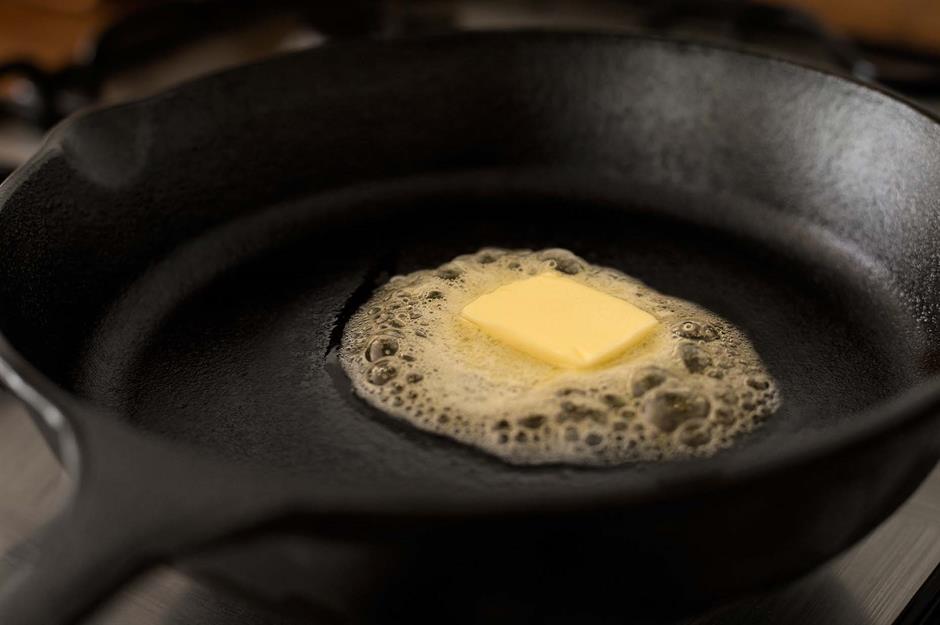
A hot pan sears meat properly, caramelising and browning it, which improves its appearance and enhances its flavour complexity. Failing to get the pan up to a fierce heat means missing out on all that potential – and this goes for almost everything, not just steak. There's hardly anything you'd ever put in a cold pan straight away.
Sponsored Content
17. Forgetting to wipe down the microwave
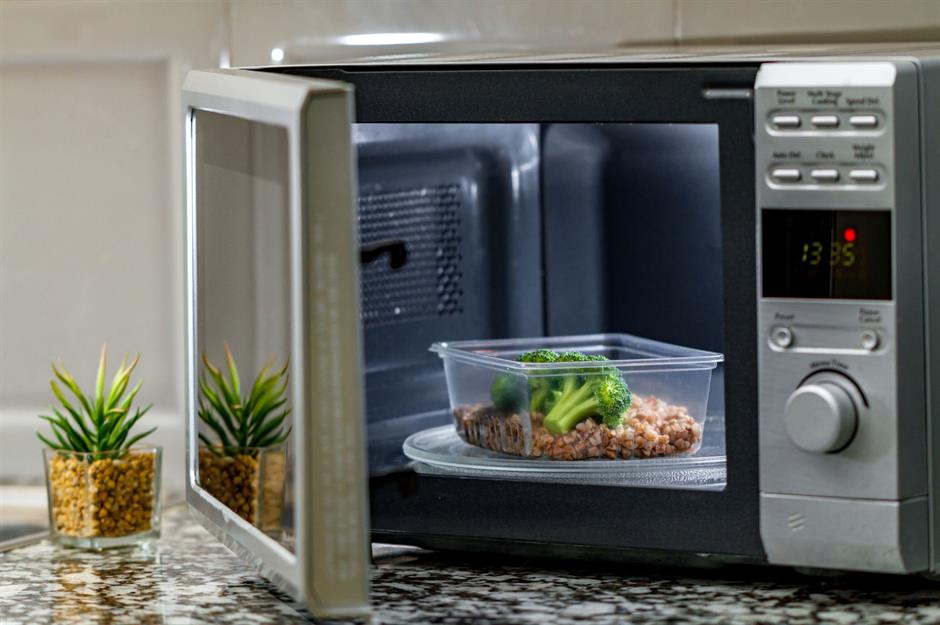
Whether you’re reheating last night’s dinner or making a simple mug cake, chances are that the ingredients will splatter across the inside of the microwave as they cook – even if you can’t see the residue. To avoid a build-up of spatters, it’s worth wiping down your appliance at least once a week, and if you spot food marks after use, clean it as you go.
16. Over-stirring ingredients as you cook
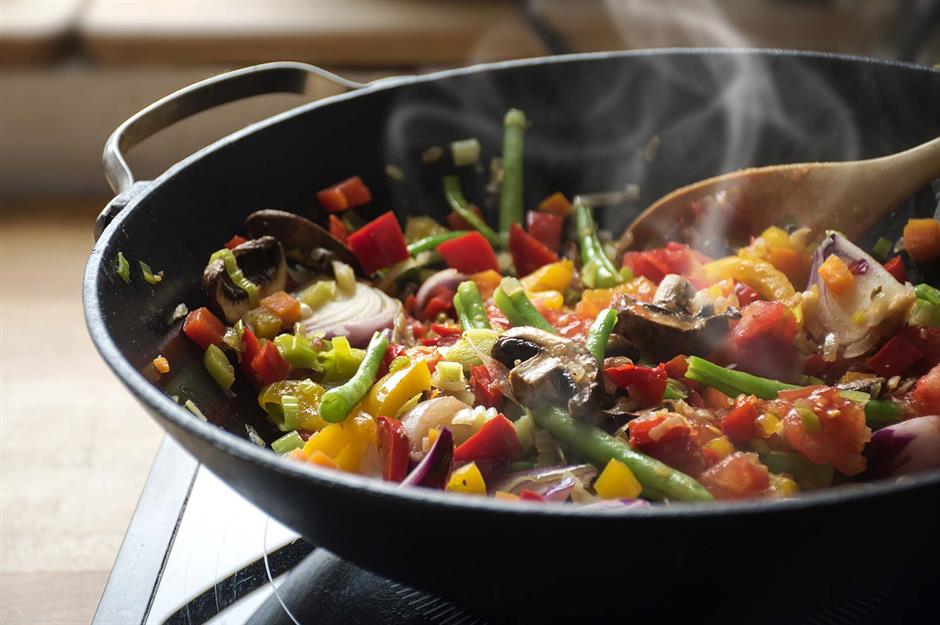
A lot of foods benefit from contact with the bottom of the pan, which gives them flavour and colour. Constantly churning ingredients with a spoon deprives them of that contact, making it more likely that you'll end up with a shapeless mush. Let the ingredients fry – and when ready, use the pan to mix them. Lift your pan at a slight angle, push it away, then bring back up in a circular motion to mix. It might take some time to master this technique, but trust us, it'll be worth it.
15. Serving meat too soon
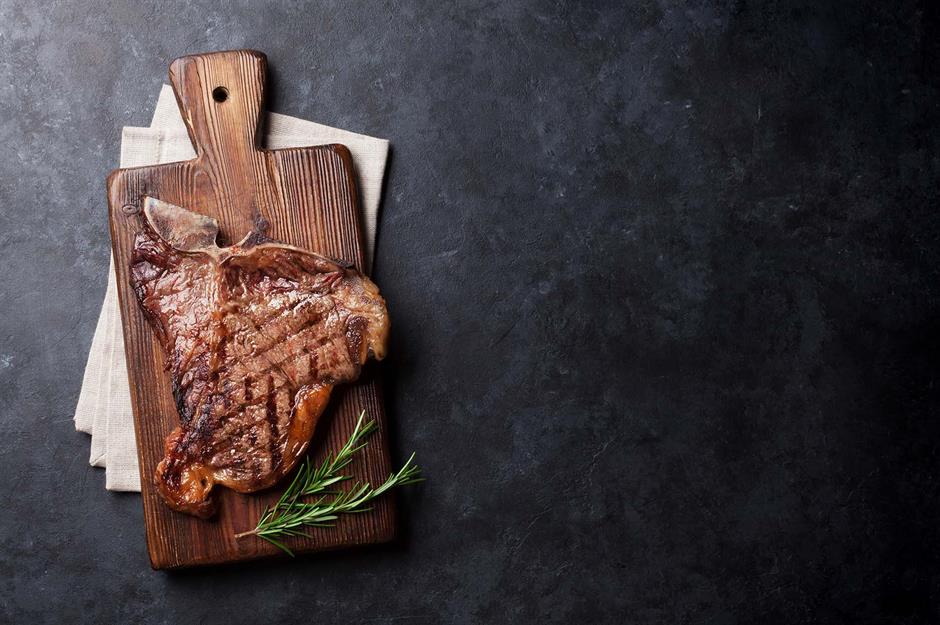
Searing a lamb chop adds lots of flavour, but it also makes the meat tense up. For the best results, remove your meat from the pan or the oven once cooked, loosely cover it with tin foil and let it rest for about 10 minutes. In that time, the meat will relax, and the juices will redistribute evenly. It will also prevent medium steaks from bleeding out onto the plate when sliced.
Sponsored Content
14. Letting your pets near food
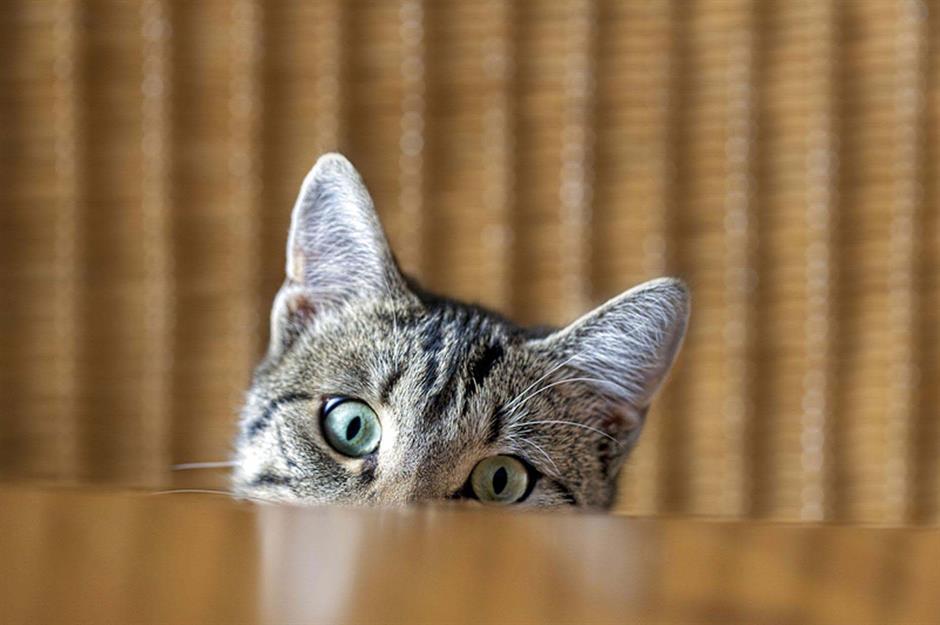
Do you know where your cat's paws have been all day? Don’t let your cat, dog or any other animal walk on the table or kitchen surface. It also goes without saying that you shouldn't let your pets lick any ingredients or cooking utensils if you want to avoid picking up any nasty bacteria.
13. Licking the spoon you're using to cook
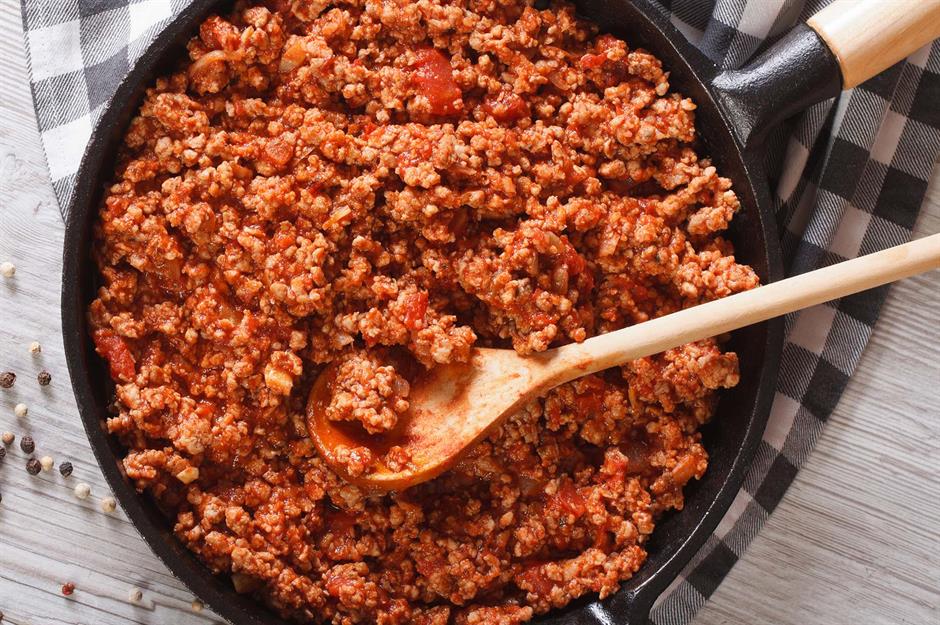
Licking the spoon might be fine if you're cooking for yourself; however, if you're catering for others, it's horribly unhygienic. If you want to try the dish you're making, use a teaspoon and don't double-dip; wash it or put it away in the sink or dishwasher as soon as it's been in your mouth. The same goes for dipping your fingers in to taste food – a real no-no!
12. Using metal utensils on non-stick pans
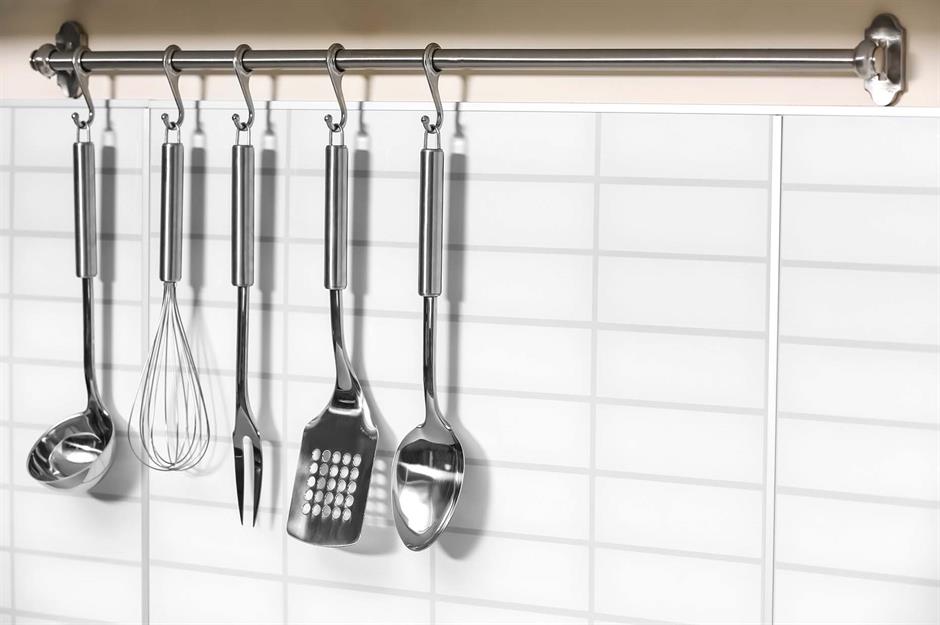
Non-stick pans really are amazing. They’re easier to cook with, serve from and clean – and they're a godsend for making dishes such as omelettes and fish. They're also great if you want to cook healthier meals, requiring less oil or butter. Yet there's one very quick way to ruin them: using metal utensils, which will damage the non-stick layer and cause it to flake off, quickly shortening the life of the pan. To protect your pans, have a few nylon, silicone or wooden utensils on hand every time you cook.
Sponsored Content
11. Overcrowding the refrigerator
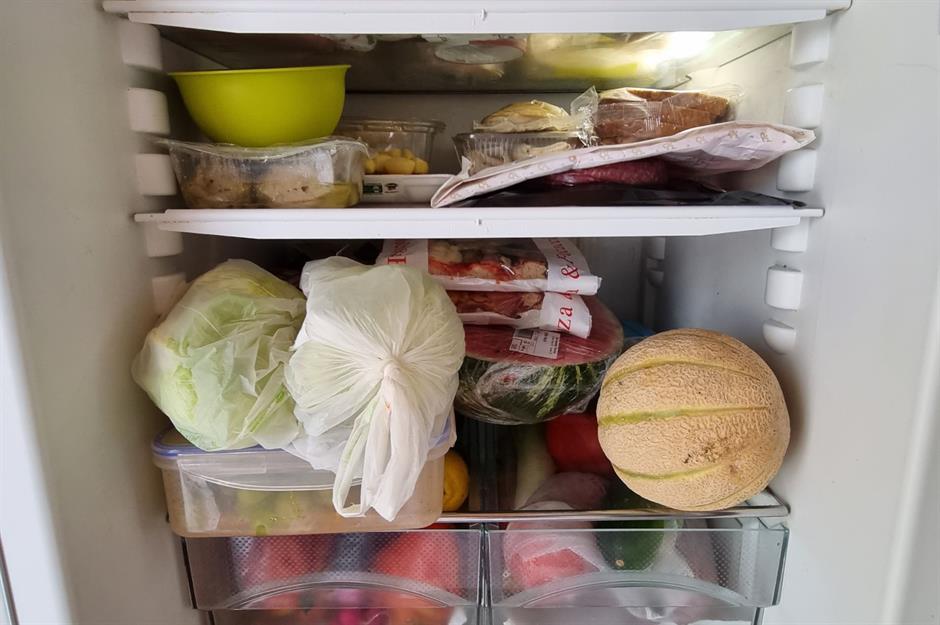
Overstocking the fridge is a common occurrence in many households. However, doing so will often mean that you forget what’s in there because you can’t see it – and, in turn, the food at the back will start to go off. While it can be tempting to stock up on excess food when there’s a good deal on at the supermarket, it’s well worth considering whether you actually need it or if you'll be able to eat it before it goes bad.
10. Under-seasoning during cooking
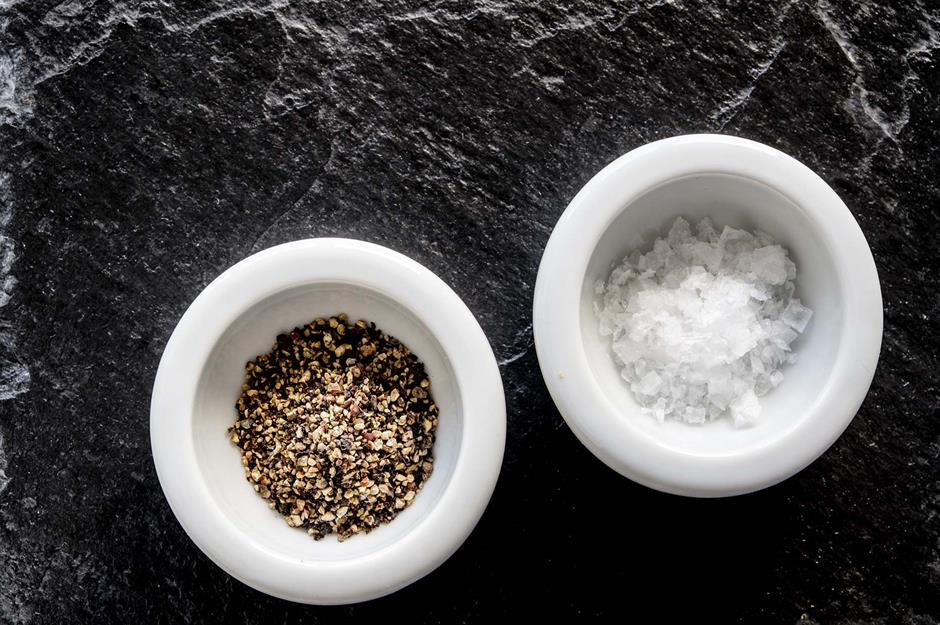
Whether it’s adding salt to pasta water or grinding pepper into a rich stew, sometimes we forget the importance of seasoning. This mostly refers to just salt and pepper as they're both essential for creating a balanced dish, but seasoning sometimes also includes herbs and spices, as well as other flavours. Note how many times cookery show contestants fail, purely because they didn’t season their dishes correctly.
9. Guessing baking quantities
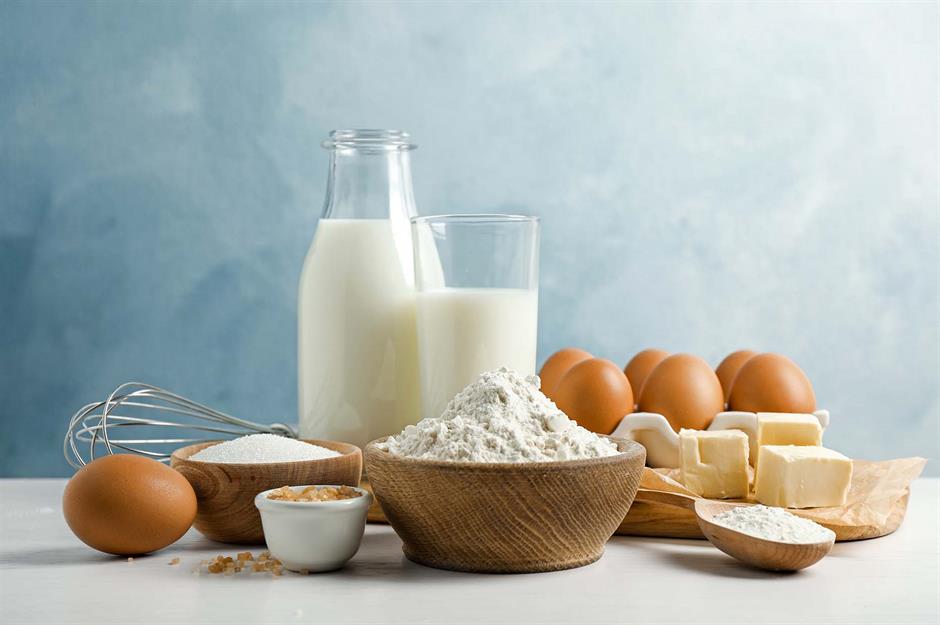
'A little bit of this and a little bit of that' can be a great approach to cooking savoury dishes. But if you don't bother to measure out your ingredients when baking, it's likely to end in disaster. There’s a reason most recipes are triple tested before they’re published: they often don’t work if you're loose with the quantities. Baking is a very specific science, especially when it comes to ingredients reacting with each other to create rise, lamination and porousness.
Sponsored Content
8. Not wiping surfaces after cooking
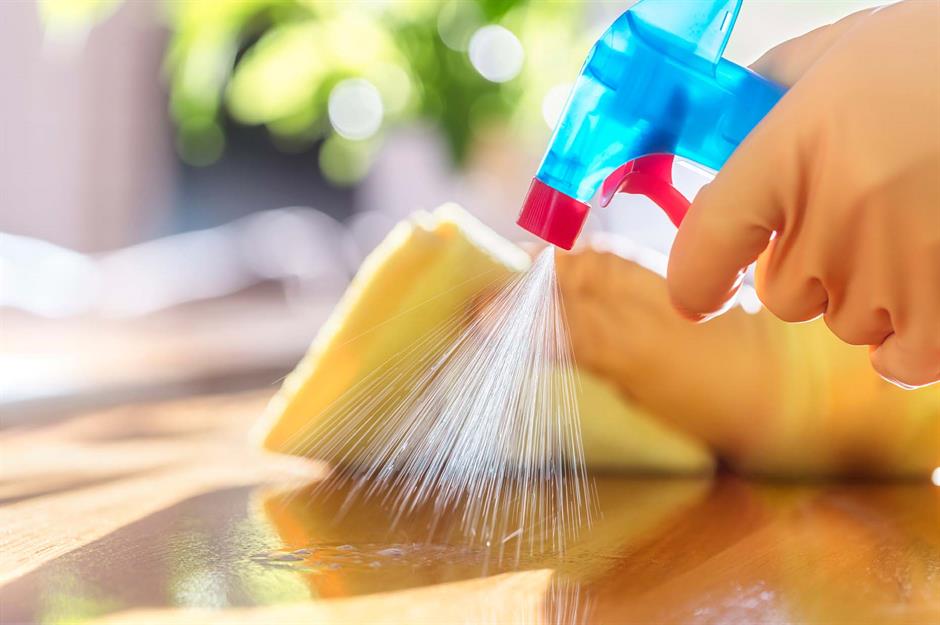
This is especially important if you've prepped and cooked raw meat. Be sure to disinfect your kitchen surfaces after cooking and wipe them down to prevent bacteria from spreading. A lack of crumbs, sugar and other bits of food on your counters will also keep things like ants and fruit flies at bay. Another tip: change your sponges and dishcloths regularly so they don’t pick up bacteria and spread it all around your kitchen.
7. Cooking meat straight from the fridge
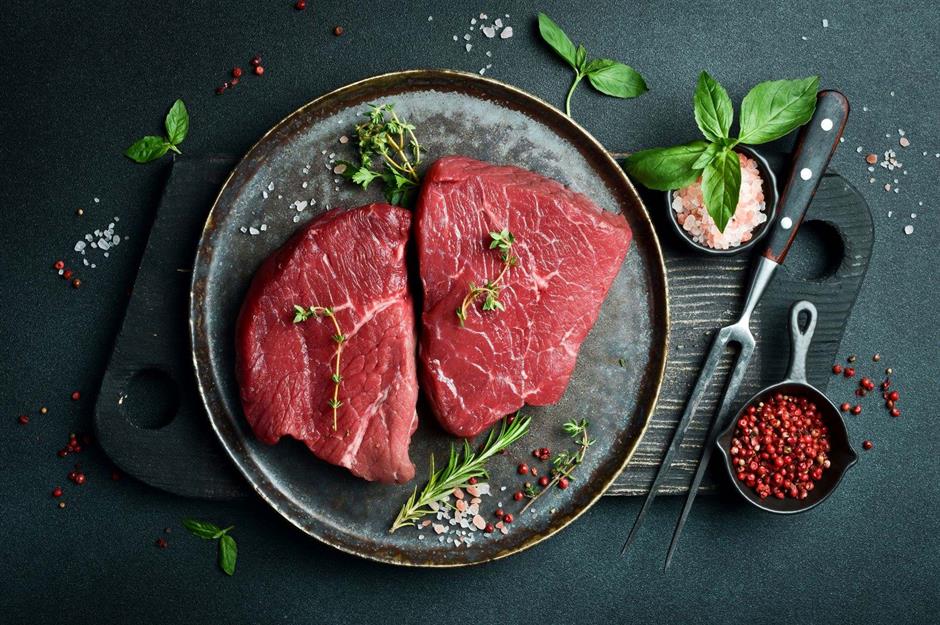
Taking steaks and other raw meats from the fridge and putting them straight into a pan or oven is likely to result in meat that's overcooked on the outside and still raw in the middle. Instead, take your meat out of the fridge about half an hour before cooking (depending on the size) so it can come up to room temperature.
6. Opening the oven door halfway through cooking
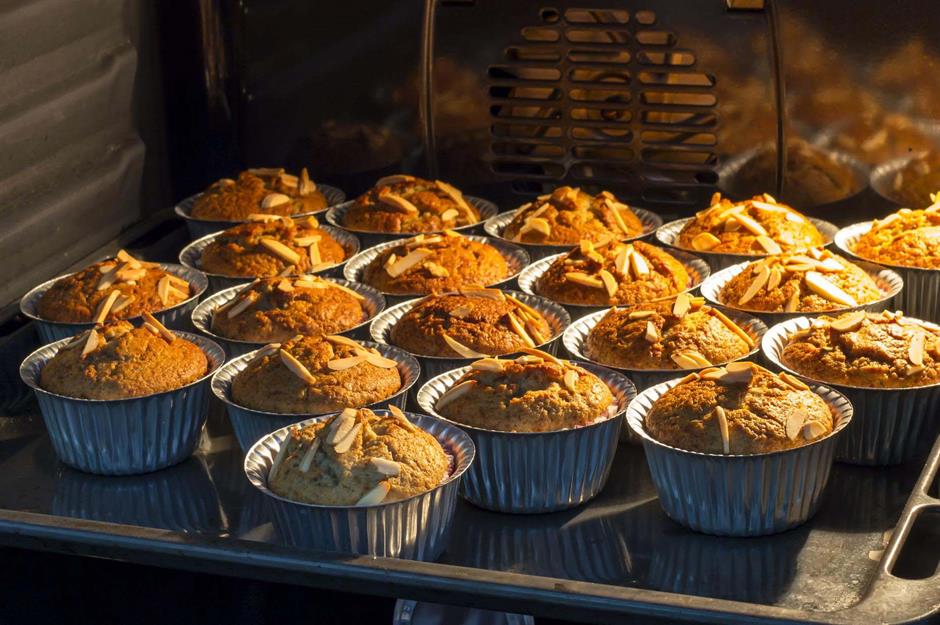
Impatience is the root cause of many kitchen nightmares, especially when oven temperatures and baking are involved. It’s natural to want to watch your cakes rise; however, every time you pop the door open, the oven cools down and takes time to get back up to temperature. It’s inefficient and extends the cooking time – and it also means that a variety of bakes, from meringues to bread, may fail entirely.
Sponsored Content
5. Leaving food to linger on countertops
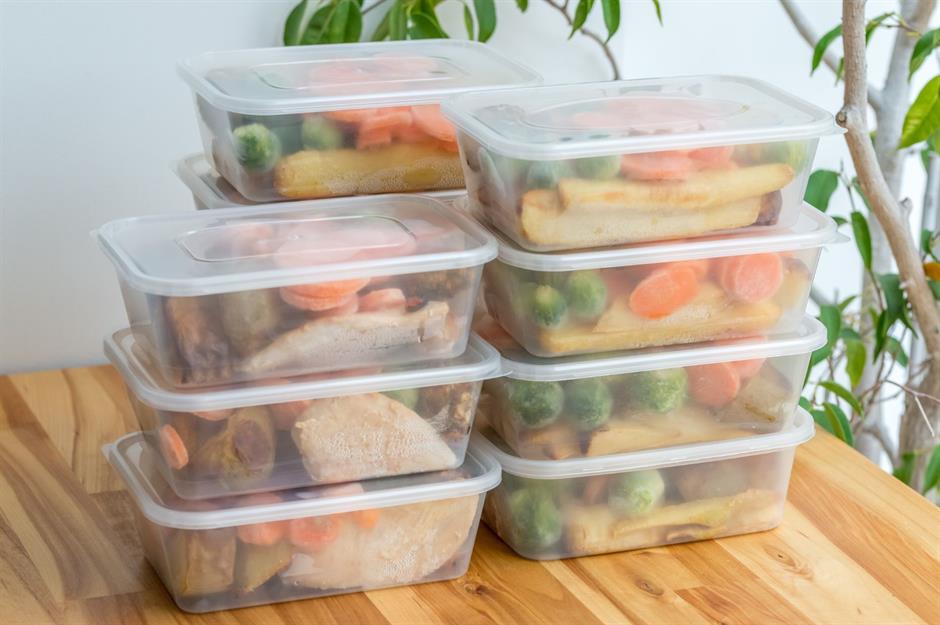
As innocent as it may seem, leaving foods like cooked eggs, rice, meat and fish out on the countertop is a risky business. Whether you’re hosting a buffet or waiting for leftovers to cool down, dishes shouldn’t be left out at room temperature for more than two hours. Following basic food hygiene rules at home can reduce the risk of harmful bacteria growth and stop you from getting ill.
4. Using the same chopping board or knife for raw meat and vegetables
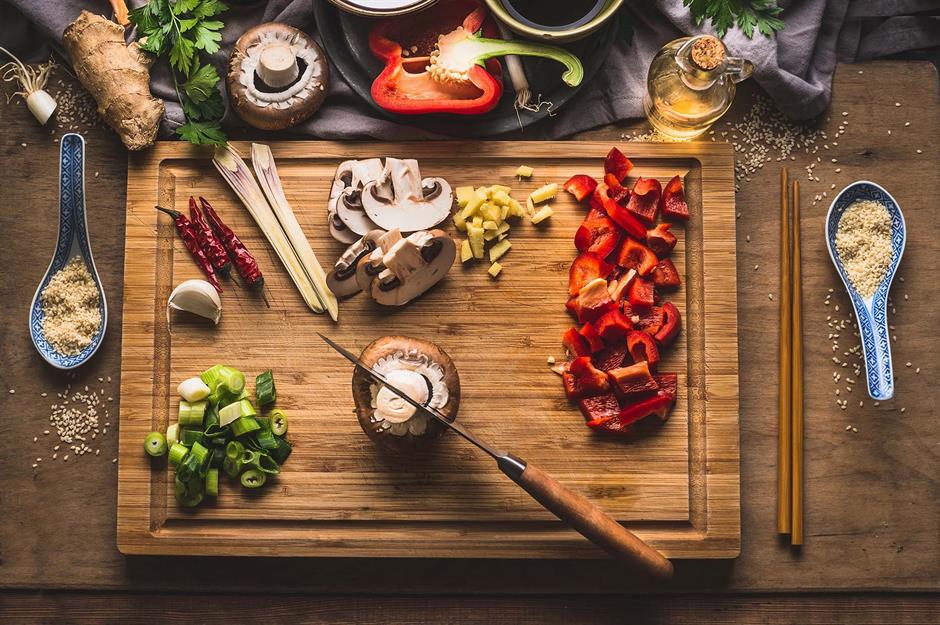
You should always use a separate chopping board and knife for raw meat, so food doesn’t cross-contaminate. Raw or undercooked meat is one of the main causes of food poisoning, and having different chopping boards and knives for vegetables and meat will reduce the risk. At the very least, be sure to give your cutting board and knives an extremely good clean after they touch raw meat.
3. Using blunt knives
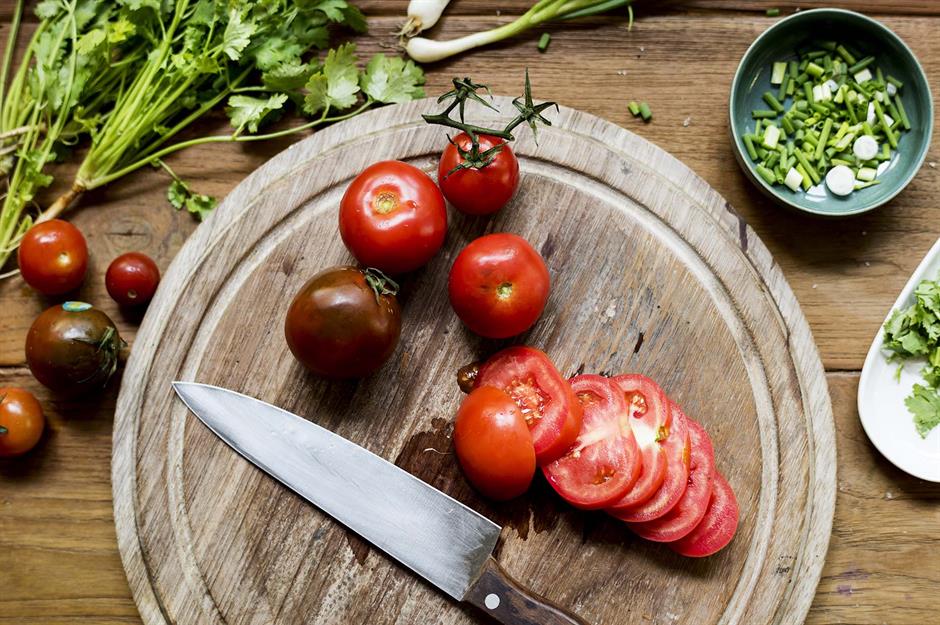
Blunt knives not only require more effort to use than sharp knives, but they also make it harder to cut items exactly as you want them. With a blunt knife, the more pressure you apply, the more likely you are to injure yourself. Counterintuitively, a sharp knife is actually a safer knife, as it will give you a lot more control and precision over the cuts you're making.
Sponsored Content
2. Washing chicken and other raw meats
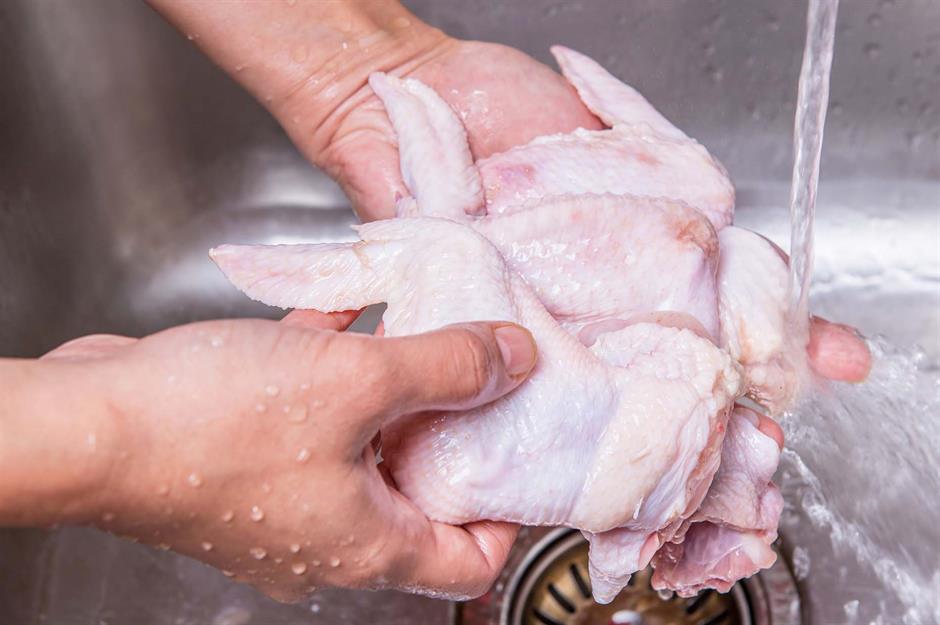
Washing raw meat like chicken or turkey used to be a common practice in home kitchens, but the latest advice from the Food Standards Agency (FSA) is to avoid doing so. Rinsing meat will splash bacteria all over your kitchen, sink, cloths and utensils. Instead, follow basic food hygiene while preparing chicken and cook it thoroughly to avoid contamination.
1. Allowing food to defrost at room temperature
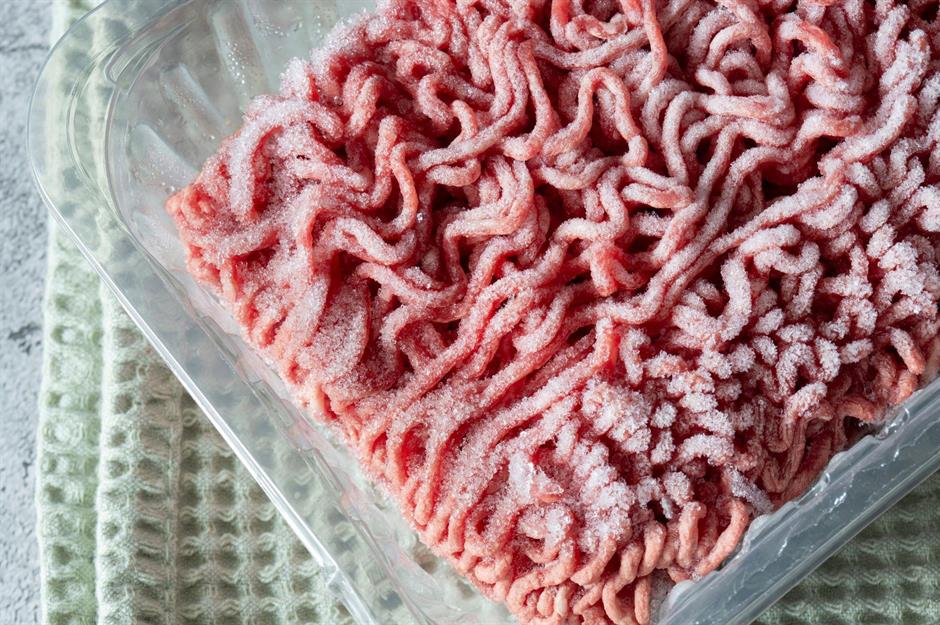
When you’re in a rush to leave the house and suddenly remember you need to defrost tonight’s dinner, it’s tempting to leave it out on the countertop – but this is a recipe for disaster and can lead to food poisoning. Instead, it’s recommended to defrost food in the fridge overnight; by doing this, you’ll be avoiding the bacteria ‘danger zone’ – between 8-63°C (46-145°F). The FSA advises consuming fully defrosted food within 24 hours.
Now discover the bad eating habits you need to break right now
Last updated by Lottie Woodrow.
Comments
Be the first to comment
Do you want to comment on this article? You need to be signed in for this feature